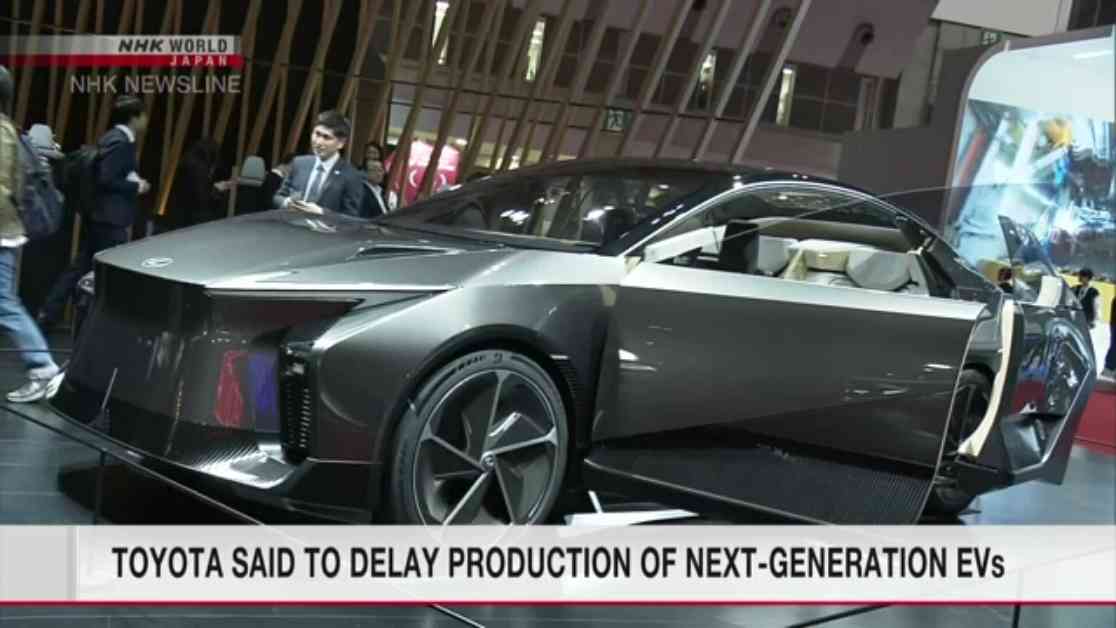Toyota Motor has decided to delay the production of its next-generation electric vehicles in order to incorporate the latest technologies into the cars. The company, which is Japan’s largest automaker, had initially planned to have its next-generation Lexus EV on the market in 2026, but now intends to start production in mid-2027.
The decision to delay production comes as Toyota aims to ensure that its new electric vehicles are equipped with cutting-edge technology. The company unveiled a concept model of the vehicle at the Japan Mobility Show last year, revealing that it will have a range of 1,000 kilometers and can be fully charged in just 20 minutes.
One of the key technologies that Toyota plans to use in the production of its next-generation EVs is giga-casting. This innovative method allows the company to produce large vehicle parts, such as front and rear underbodies, as a single component, rather than multiple parts. In addition to giga-casting, Toyota also plans to introduce new operating software in the vehicle to enhance its performance and efficiency.
Despite the delay in production, Toyota has ambitious plans for its electric vehicle lineup. The company aims to produce 1.5 million EVs globally in 2026, a number that includes plug-in hybrids as well. Toyota anticipates growing demand for plug-in hybrids and wants to ensure that it can meet the needs of consumers looking for more sustainable transportation options.
By taking the time to integrate the latest technologies and production methods into its next-generation electric vehicles, Toyota is positioning itself as a leader in the rapidly evolving electric vehicle market. With its focus on innovation and sustainability, Toyota is poised to continue driving the future of mobility and shaping the way we travel for years to come.
